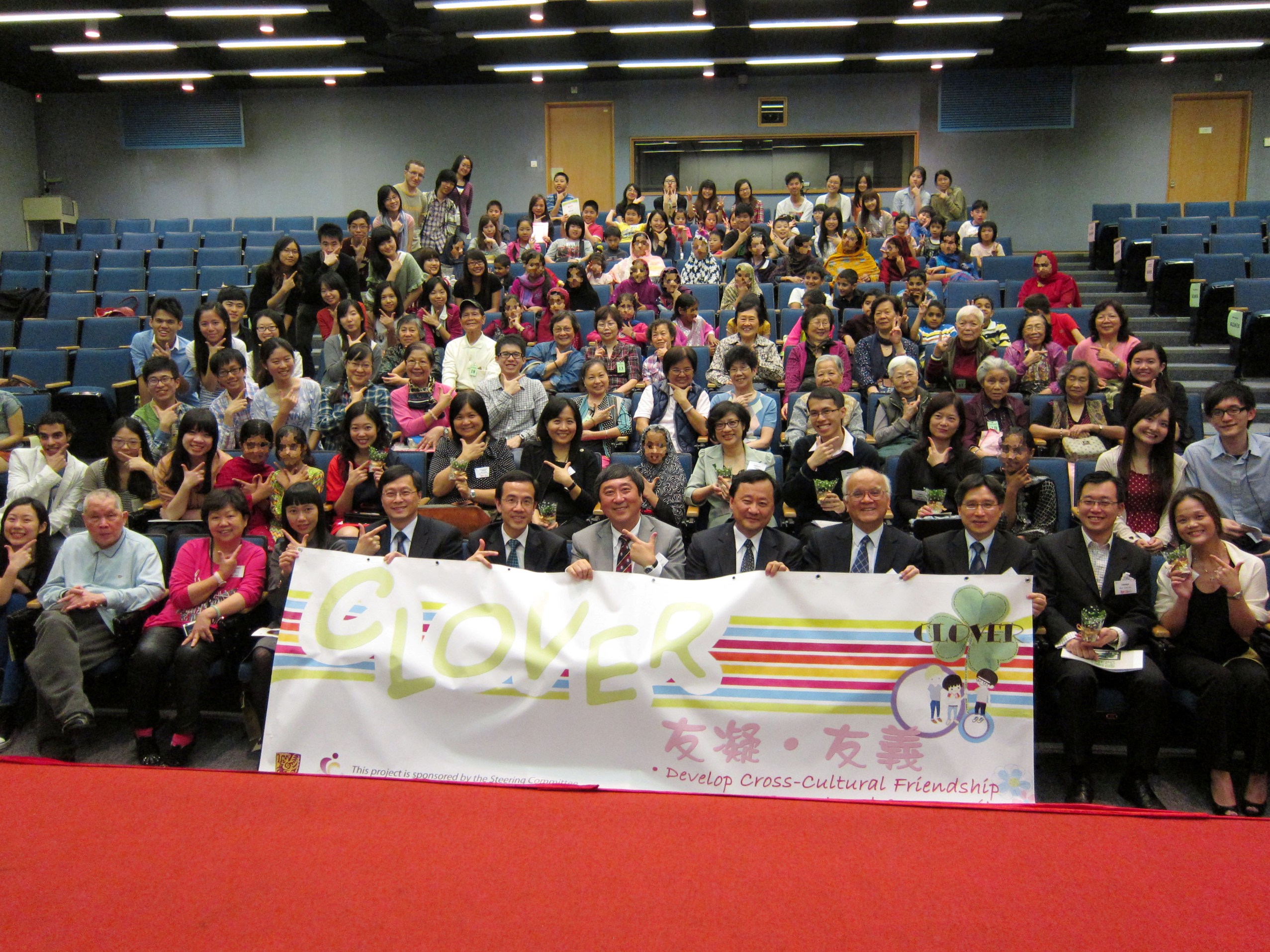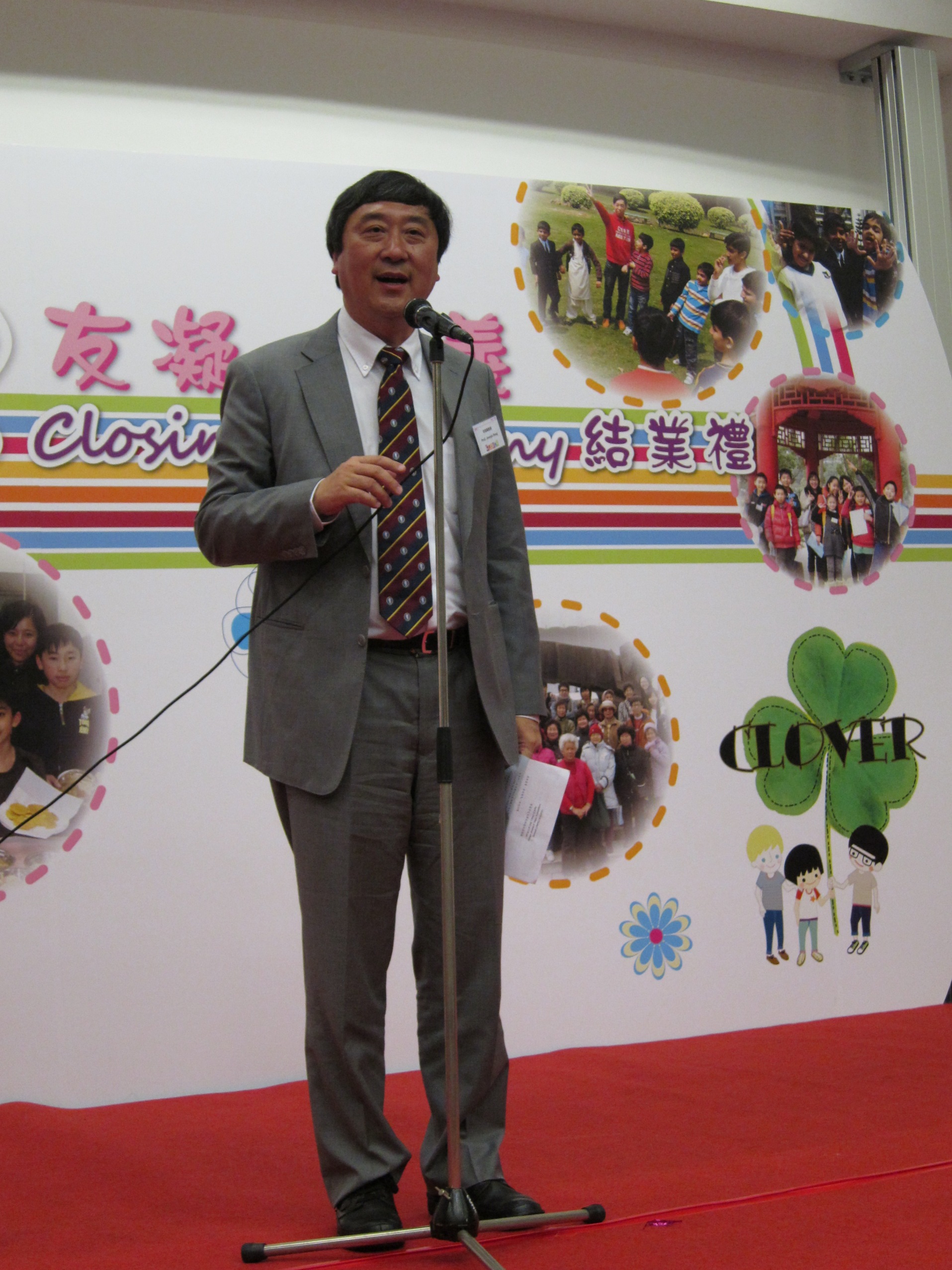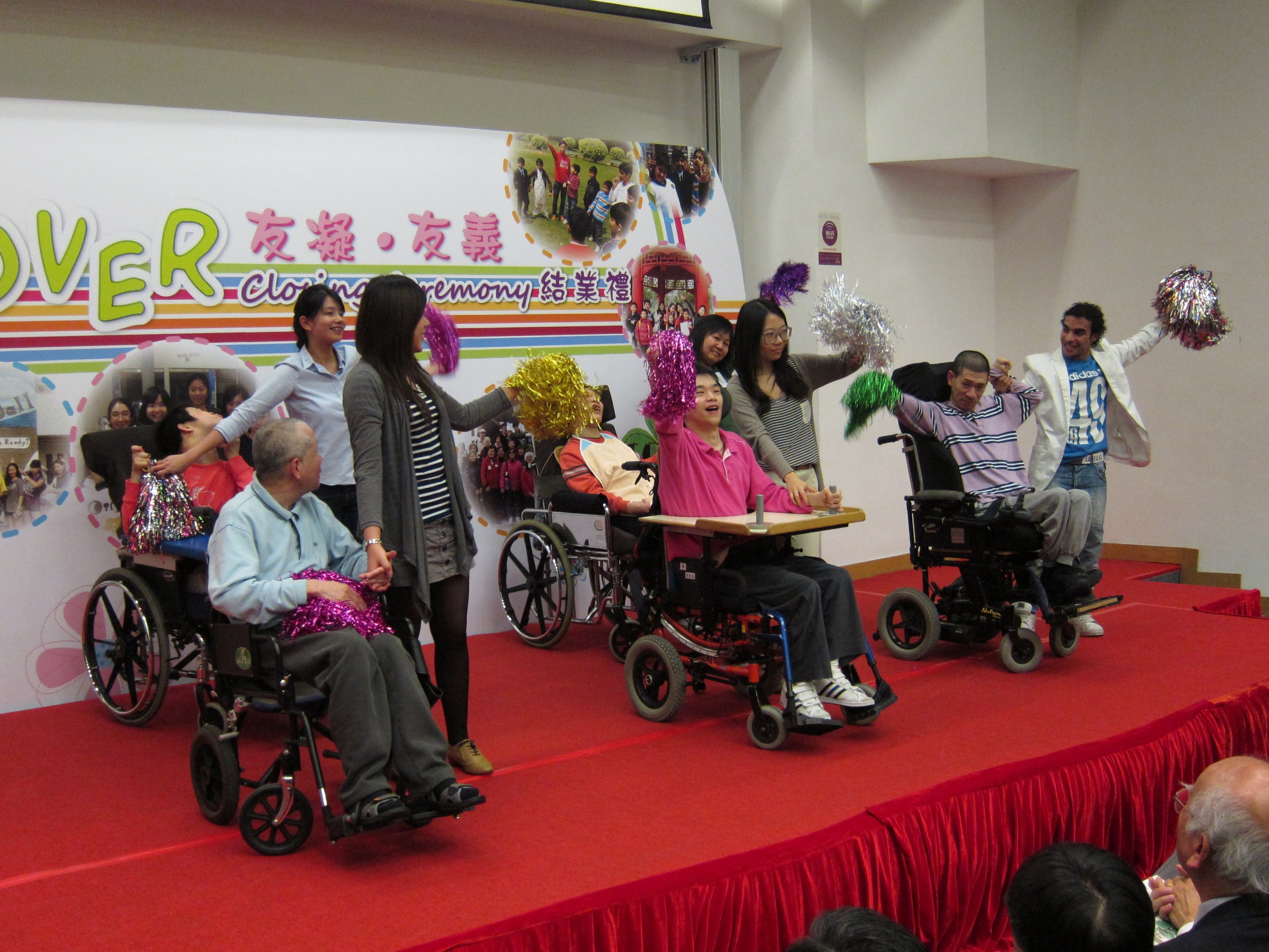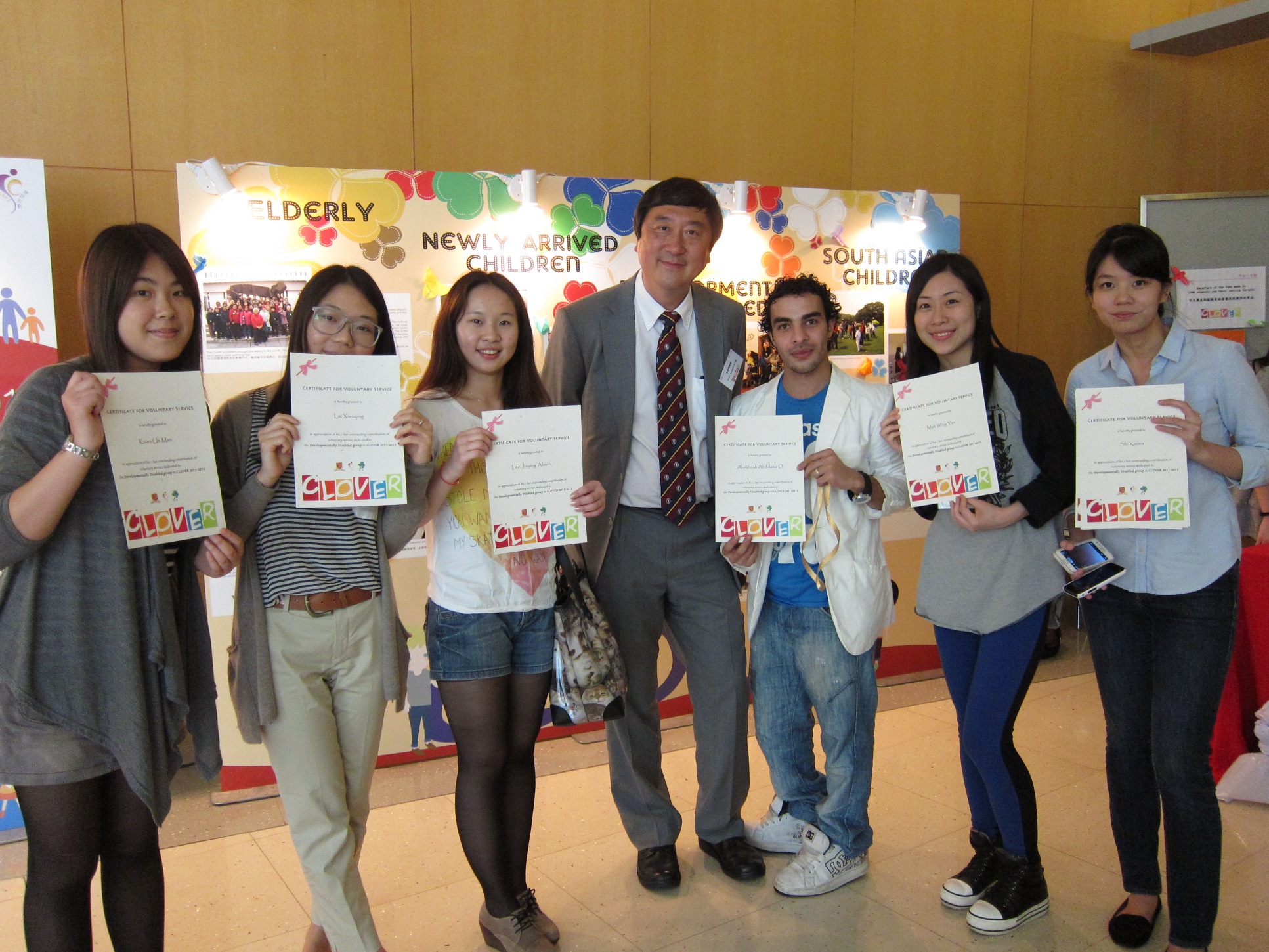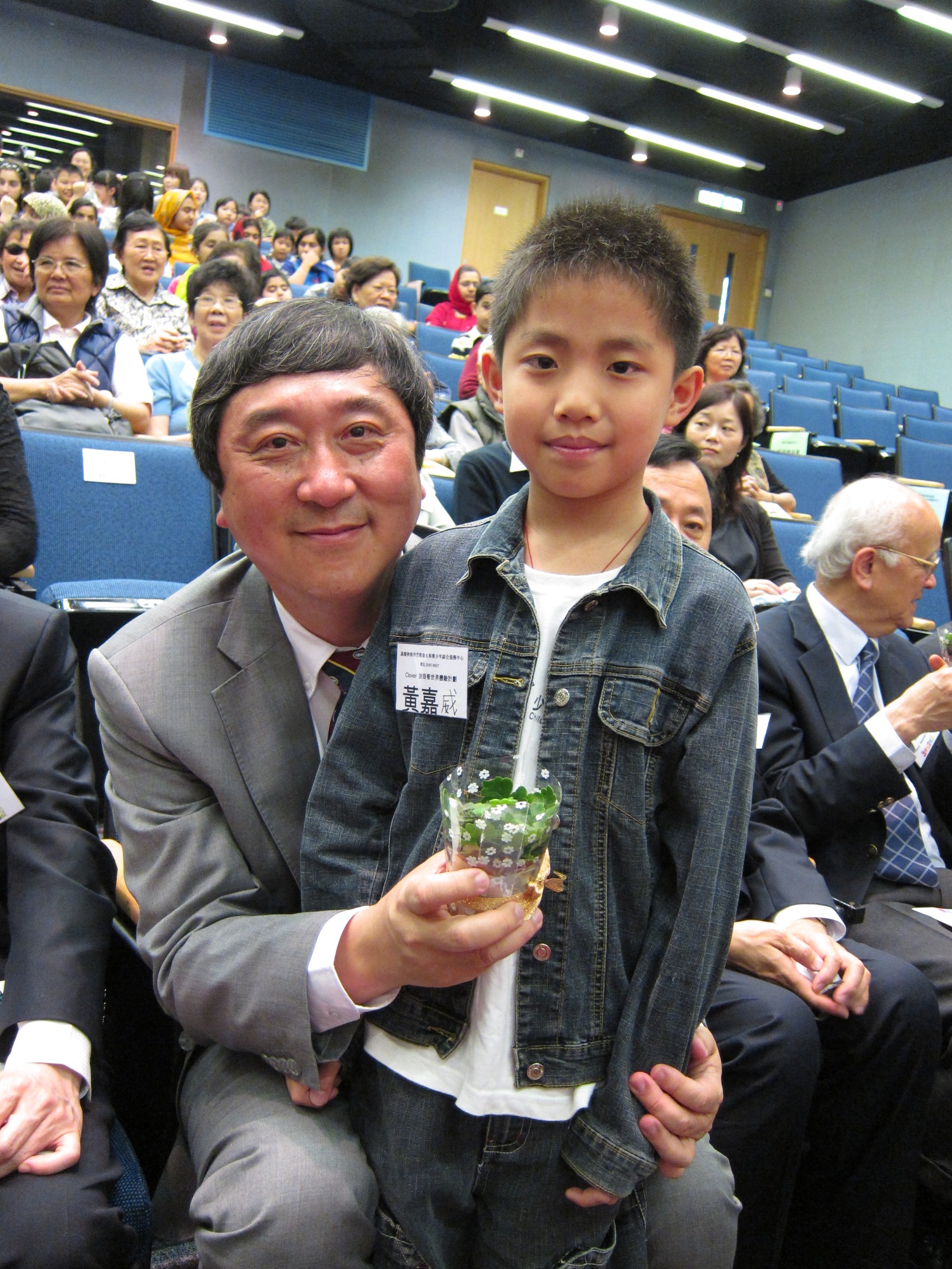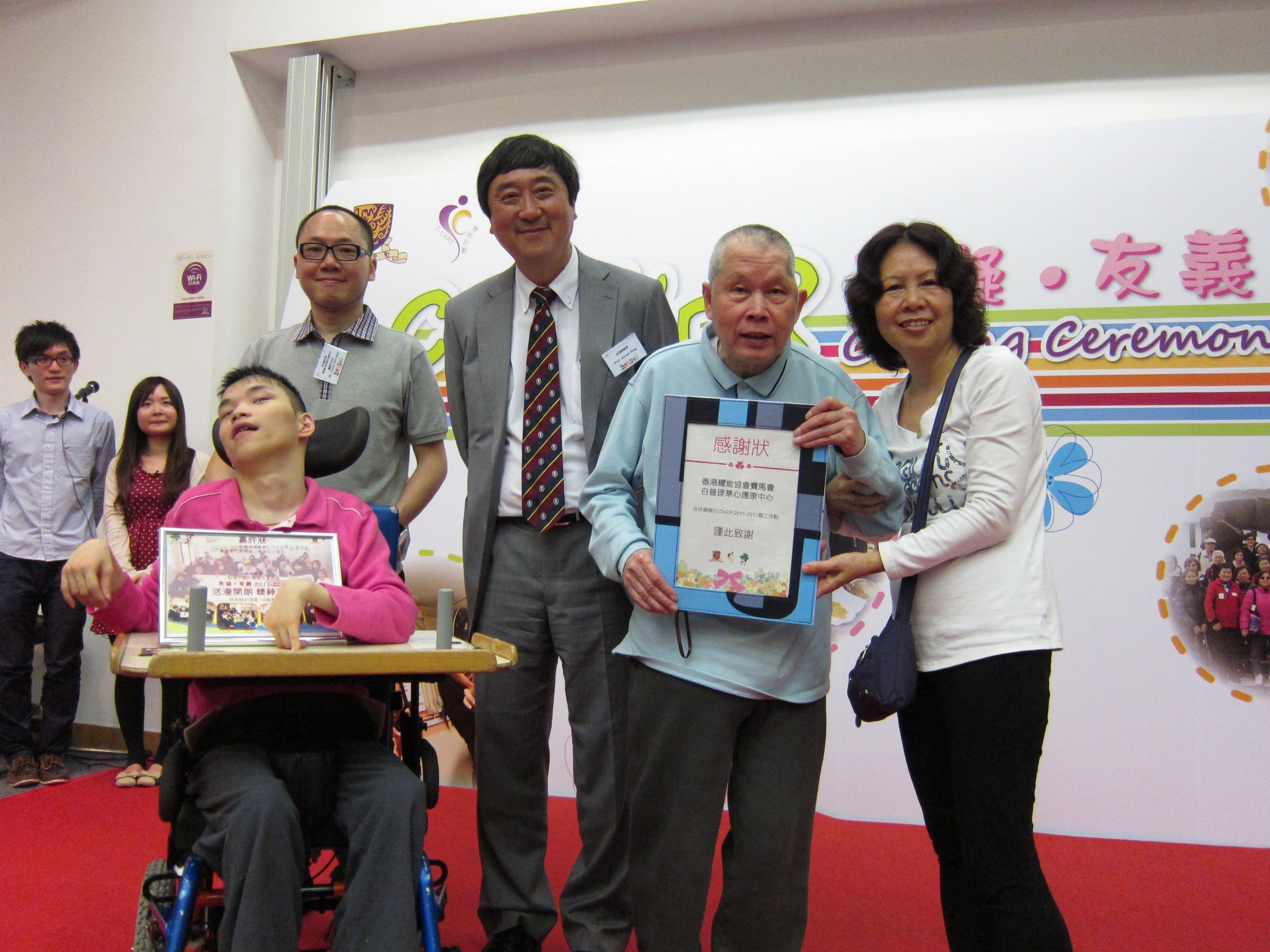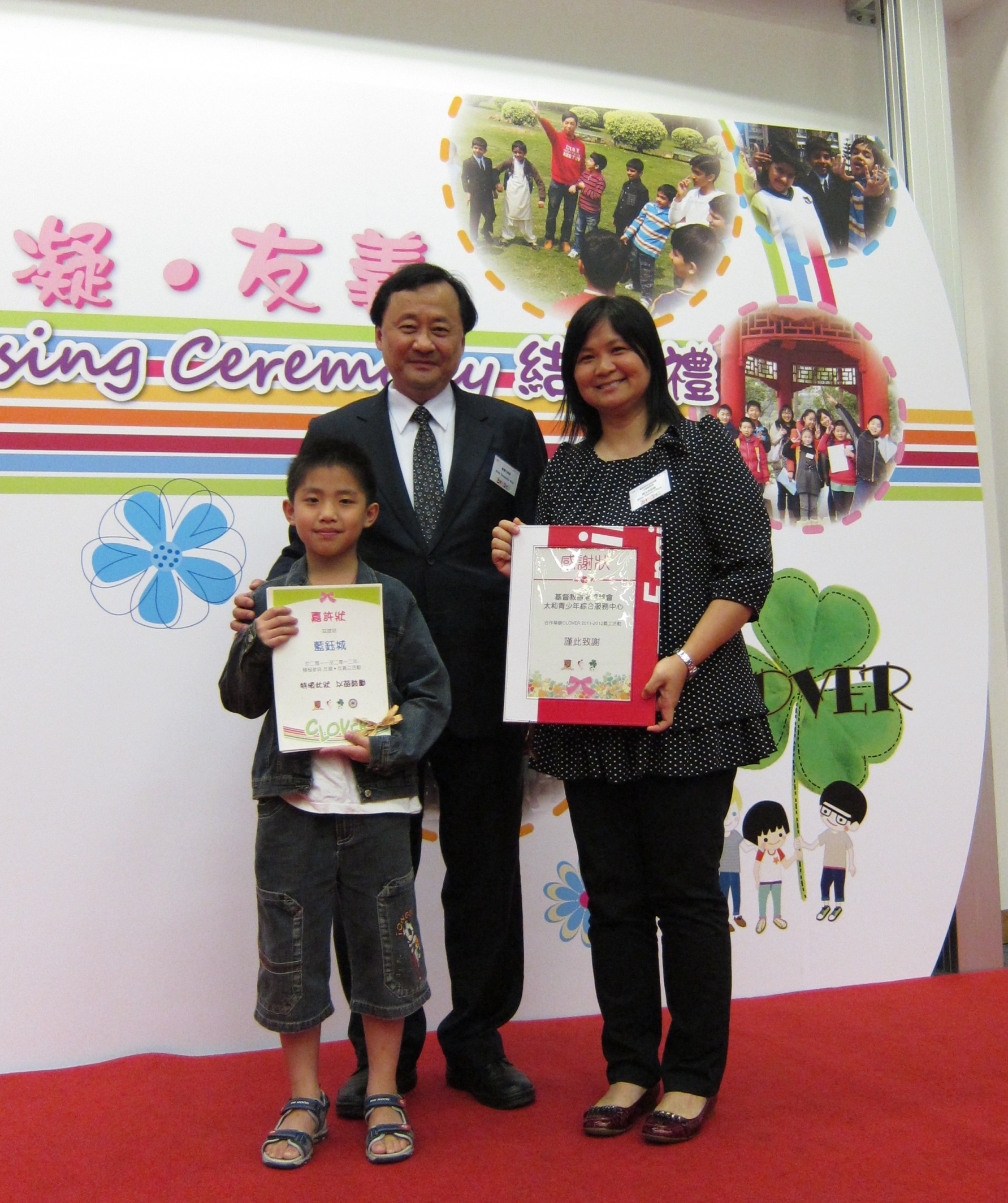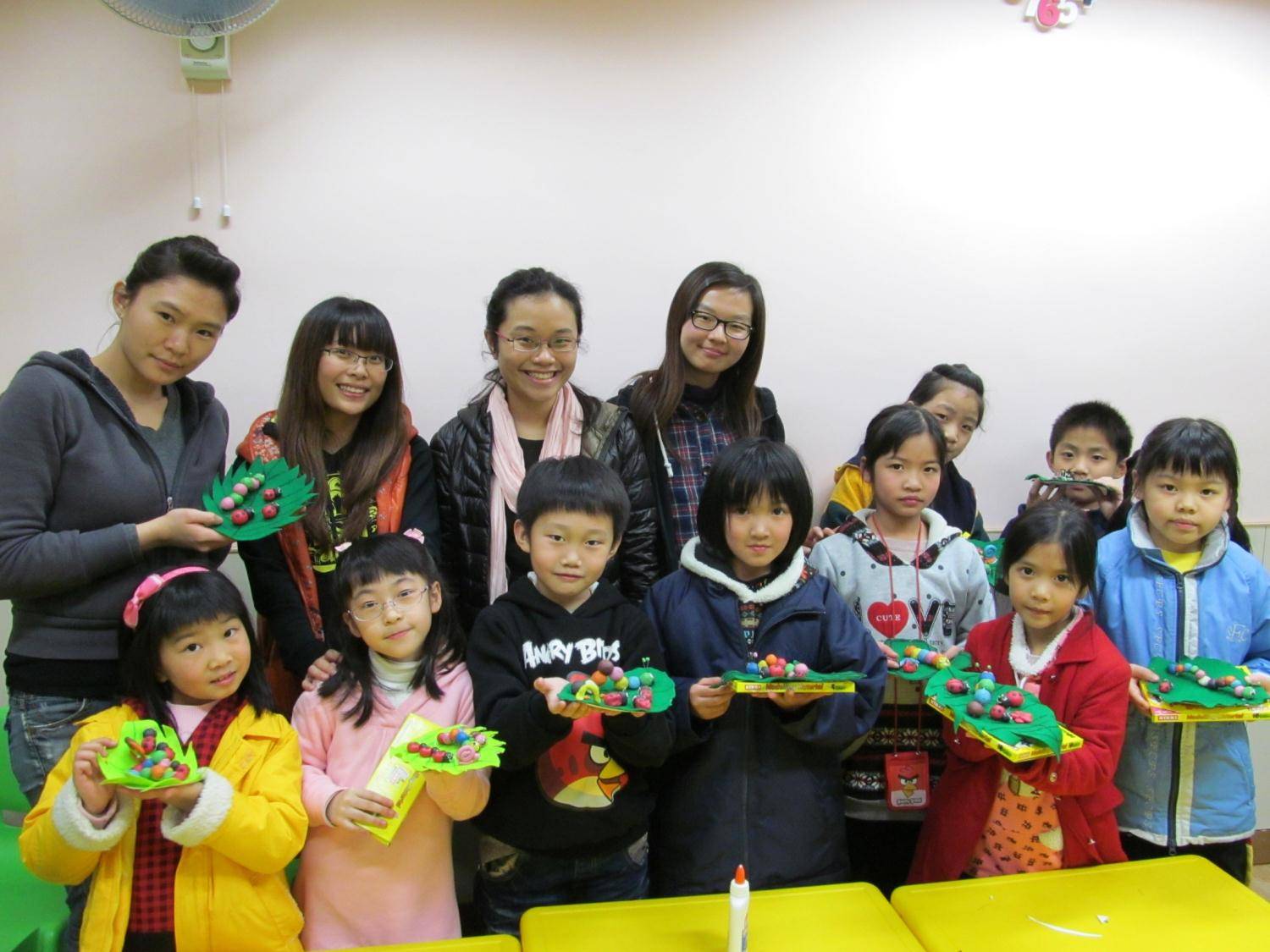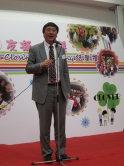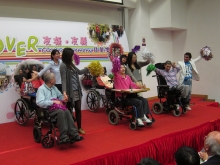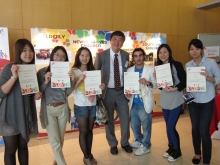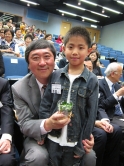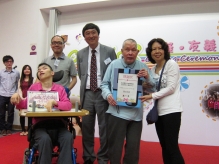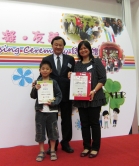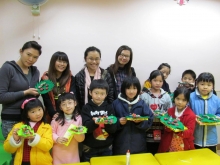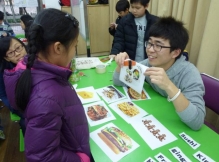CUHK
News Centre
CUHK CLOVER Programme Supported by I‧CARE Concludes with Local, Mainland and Overseas Students United in a Bond of Love and Care to Serve the Community
CLOVER, a campus-wide cultural diversity cum voluntary service programme in which local, mainland and overseas students at The Chinese University of Hong Kong (CUHK) join hands in the provision of community services to needy people, today (11 April) concluded with a jubilant closing ceremony. Having just finished its third year, CLOVER received a funding support of HK$100,000 from the I‧CARE Programme in 2011, allowing some 70 students to study local social issues and organize a wide variety of services and activities for newly-arrived children, South Asian minorities, the elderly and the developmentally disabled, serving a total of more than 200 beneficiaries.
Organized by the Office of Student Affairs, CLOVER (Community + Local & Overseas students + Volunteers = Everlasting Relationships) is devoted to promoting cultural integration among students and helping non-local students adjust to their new life. Student participants of CLOVER on the one hand can make new friends with others of different cultural backgrounds to promote cultural and lingual exchange. On the other, the programme helps deepen students’ understanding of society and the problems confronting those who need help, cultivate the spirit of giving and sharing and develop a sense of responsibility to society. Volunteer teams formed by local and non-local students from mainland China, Macau, Taiwan, South Korea, Singapore, Malaysia, France, Yamen and the US organized a wide variety of activities including interest classes, outings, fun days for different groups of service targets.
Prof. Joseph J.Y. Sung, Vice-Chancellor of CUHK, officiated at the closing ceremony in an atmosphere of love and joy. Some 100 students and service clients participated. A number of performances were staged including a wheelchair dance by developmentally disabled individuals and Cantonese songs sung by South Asian children. The students also joined the performances, shared their unforgettable experience and inspirations obtained through past service activities and presented their research study results.
Harmony in diversity
As students joining CLOVER were of diverse backgrounds, communication among themselves was not always an easy task, especially when they needed to plan and discuss the service contents and execution details. ‘As our group members speak different mother tongues – English, Cantonese and Putonghua, communication was the first thing we had to settle on at the beginning. After some communication and give-and-take, we managed to overcome the language barrier and were able to deliver our services smoothly,’ said David Lau, a student from Malaysia. Apart from overcoming the language differences, participants also learned to respect and embrace different cultures in the programme.
Adding colour to disabled people’s life
Participants of CLOVER have also widened their perspectives through their interaction with the service clients. The students were impressed and inspired by the creativity and devotion of the care-givers when they knew that, with their help, wheelchair-bound people could enjoy activities like bowling, kendo and mountaineering classes. Yanice Mak, a local student, was moved, ‘The staff of the centre will think of all possible means to bring their clients joy. It doesn’t necessarily require a great deal of work to help them, but the love and care can mean a lot to the people in need. This gave me so much food for thought, making me more committed to the service.’
More than just giving a helping hand
CLOVER has allowed the participants to have a closer look at local social issues through research study, promoting mutual understanding and bridging the gaps in age, culture and religion between different social groups. With observation and use of questionnaires, some students analysed the level of interaction between South Asian children and the local community, while some examined how the use of incentives affected the newly-arrived children’s motivation for study. In a research study about approaches to help the elderly acquire a new spoken language, the students found that teaching applied Putonghua phrases in an interactive way was most effective. ‘At first we tried to teach them some Putonghua slangs, but later we got more enthusiastic response from the elderly while teaching phrases related to Chinese New Year culture in Hong Kong and mainland China. The research helped us to better understand the elderly and the results are helpful to our future communication with them,’ said Jackson Lee, an accountancy student from Hong Kong.
About I‧CARE Programme
With the slogan ‘Aspiration through reflection; Renewal through civility’, the I‧CARE Programme aims to promote students’ holistic development through social and civic engagements in Hong Kong, mainland China and overseas countries. Led by the Steering Committee for Promoting Personal Development through Social and Civic Engagement, the programme adopts an integrated approach and supports students to participate in five major categories of programmes, including service projects and self-initiated action-research projects; internships in non-governmental organizations (NGOs); social enterprises and corporate social responsibility measures; university lectures on civility, seminars and forums; and enhancement of students’ mental wellness.
Some developmentally disabled service clients perform wheelchair dance along with CUHK students during the ceremony.


